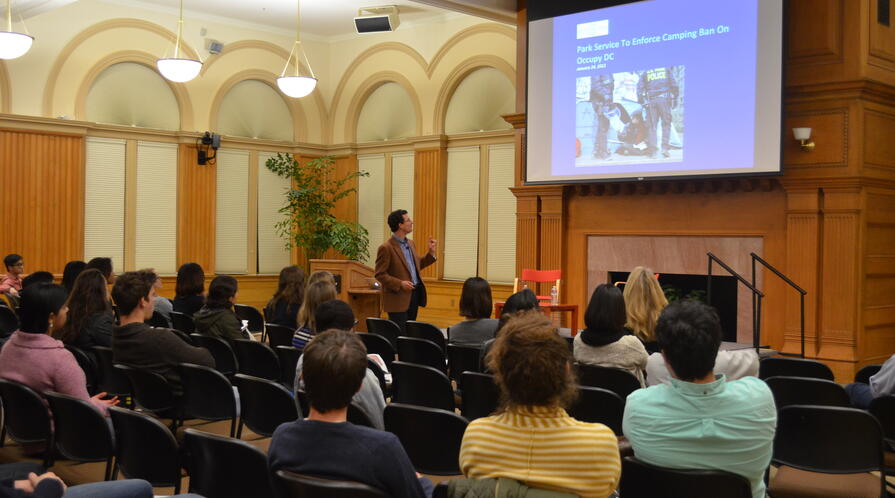Douglas Rutzen, president and CEO of ICNL, speaks on defending civil society

Douglas Rutzen, president and CEO of the International Center for Not-for-Profit Law (ICNL), and adjunct professor of law at Georgetown University in Washington, D.C., gave a talk on defending civil society for the Stanford Program on Human Rights’ Winter Speaker Series, “U.S. Human Rights NGOs and International Human Rights,” on January 7, 2015.
Rutzen sounded the alarm of today’s disturbing trend of governments around the world using the rule of law to restrict civic spaces of congregation and protestation. Highlighting that national governments are constitutionally committed to a rule of law, Rutzen claimed this is not being applied in the interests of the citizen but rather to restrict citizens’ criticism of government. Rutzen emphasized that this misuse of the rule of law to restrict civil society is a tool of manipulation utilized not just by nations with a history of civic control, such as Cuba and Russia, but also by liberal democracies, including the United States.
Rutzen noted that the Millennium Development Goals (MDG) established in 2000 were dramatically altered by the attacks of September 11, 2001. NGOs were targeted as potential terrorist organizations, while at the same time recognized for their potential to fight terrorism. This contradiction shows the tension in the role of NGOs in civil society. The challenge now lies in a long-term transformation of the relationship between NGOs representing civil society and national governments.
The talk continued with a discussion with Helen Stacy, director of the Program on Human Rights, and Rutzen. Stacy posed provocative questions that challenged Rutzen to defend his stance with questions on U.S. cultural imperialism; “good” and “bad” civil society groups; and the need to understand domestic civil society engagement with human rights issues as part of international human rights activism.
-Dana Phelps, Program Associate, Program on Human Rights
